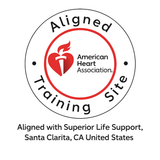CPR Certification vs Recertification: What’s the Difference?
Understanding CPR Certification
CPR certification is essential for many healthcare professionals and individuals who want to be prepared to handle cardiovascular emergencies. Certification courses, like those for CPR Classes Near Long Beach, CA, include hands-on training and instruction on how to perform CPR effectively on adults, children, and infants.
What Does a Certification Course Include?
- Basic Life Support (BLS): Learn the fundamentals of CPR and resuscitation techniques.
- Advanced Cardiovascular Life Support (ACLS): For healthcare professionals managing severe emergencies.
- Pediatric Advanced Life Support (PALS): Specialized training for cardiac emergencies in children.
Each of these courses is designed to prepare participants with the necessary knowledge and skills to respond effectively in emergencies. For more detailed course options, visit our Complete List of All Classes.
What is CPR Recertification?
CPR recertification is the process of renewing your CPR credentials. This is necessary because skills can diminish over time, and staying updated with the latest guidelines ensures you're prepared to save lives.
Why is Recertification Important?
- Ensures compliance with American Heart Association (AHA) guidelines.
- Keeps your skills sharp and up-to-date with the latest CPR techniques.
- Required for maintaining professional credentials in many fields.
When Should You Recertify?
Typically, CPR certifications are valid for two years. It’s important to plan ahead and enroll in a recertification course before your current certification expires. Check our Contact Us page for more information on scheduling your recertification course.
Conclusion
Whether you are considering certification or recertification, staying informed and current with CPR training is crucial for effective emergency response. Our certified instructors are here to empower you with the knowledge and confidence to make a difference. Join Prime CPR Services today and enhance your life-saving skills.


